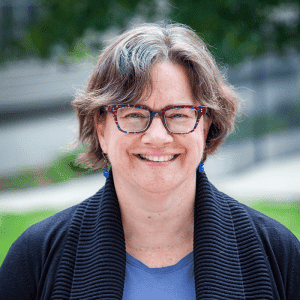Children, no matter who they are or where they go to school, need educators who seek to know, support and challenge them by making learning relevant, engaging, and relational. Helping create caring teachers who know how to connect with and inspire their students is central to Belmont Day’s Associate Teacher Program. Our associate teacher program is proudly now in its 29th year, and I feel that its mission has never been more critical. These past two years have shown our world the incredible importance of educators, and the eight associate teachers at BDS today have chosen to enter the profession at a truly remarkable and unpredictable time.
After a fall of observing the associates hone their craft in our kindergarten to eighth grade classrooms and reflecting on all they’ve learned at our Friday seminars, I am struck by this group’s commitment to children, their capacity for empathy and a drive to make school a place where children can thrive and feel they belong. Being an educator has never been easy, but for those who choose to teach, the rewards have almost always far outweighed the challenges.
However, even before COVID entered our lives, there was distressing data that showed a decline in people who were choosing to become teachers. Given my role in helping to prepare new teachers, I am troubled by this trend. What concerns me most is that I’m not sure that enough people see what might be on the horizon. What I hear is that the job is simply too emotionally or physically demanding when compared to other professions and that teachers are not compensated well enough or culturally valued in this country. You may have seen one recent indication of this in a video from a hockey game in South Dakota. In it, a group of teachers grabbed one dollar bills in a “dash for cash” to help them secure funds for essential classroom supplies during an intermission on center ice while the audience cheered.
On a national level, teachers have found themselves at the center of an ongoing debate about how to authentically and honestly teach our country’s history. And through this era of COVID, teaching, like so much in our lives, has become even harder. Some feel that fears of teacher shortages have been overblown, pointing to studies like one from the Wheelock Education Policy Center at Boston University, which found that teacher-turnover rates in Massachusetts remained largely stable throughout the 2020-21 school year.
While studies like Wheelock’s may indicate that more teachers than we think are staying in education, leaning in and doubling down on their commitment to children and their work in schools, it’s the teacher pipeline that has me turning in my sleep. The educator shortage is real in this country, which makes our Associate Teacher Program even more essential than it has ever been before.
Teachers are not born to teach. Teachers are made. The best teachers are those who reflect, and who continue to ask questions of themselves, their colleagues, and their students in order to improve and think deeply about best practices. There are as many ways to teach as there are students who want to learn or who have yet to understand how to learn. The common thread isn’t in the teaching of the material, but in knowing all of the humans in the room, be they students or teachers. Once you know yourself and your students, you can begin to think about how best to engage everyone in learning.
Our school has mentored and supported hundreds of educators who now teach and lead in public and private schools across the country. If we pause to think about how many students have been impacted by those associates, our numbers move up into the thousands. The ripple effect is pretty profound. And by engaging in the work of preparing teachers here at BDS, our own teaching practice improves and evolves in rich and healthy ways. When we ask our associates to be open, flexible, and inquisitive and see the potential in the ideas and people around us, we push ourselves to constantly do the same. It’s what ALL students deserve.
I wouldn’t be doing my job if I didn’t also mention that if you, or anyone you know, is considering the teaching profession, please contact me at hwoodcock@belmontday.org. I’d love the chance to talk!

